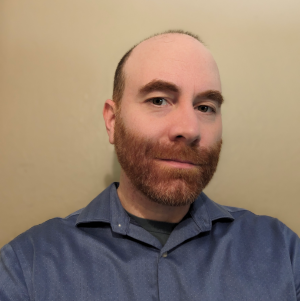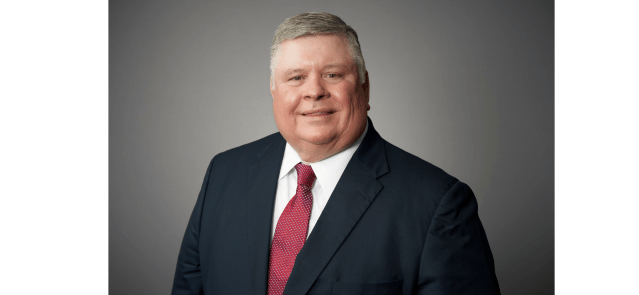Stay ahead of the curve as a political insider with deep policy analysis, daily briefings and policy-shaping tools.
Request a DemoOur History: Gov. Jimmie Davis

On today’s date in 1944, Jimmie Davis was inaugurated for his first term as governor of Louisiana.
Born to a Jackson Parish sharecropper’s family in 1899, Davis was one of 11 children and began his education in a two-room public school. He graduated from Beech Springs High School in 1921 and went on to study at Louisiana College and LSU.
Davis spent far more years singing than governing, though the two careers were tightly intertwined.
His earliest recordings, beginning in 1928, mixed cowboy songs with sexually suggestive, double entendre-laced blues. He got his big break singing for $5 a week on Shreveport’s KWKH, which became home to the Louisiana Hayride, the most famous country music radio show other than the Grand Ole Opry.
Davis “rose to prominence in the 1930s with a smooth vocal style that helped popularize country music far beyond its original rural southern audience,” according to the Country Music Hall of Fame, which inducted him in 1972.
Davis always claimed to have written “You Are My Sunshine,” his most famous hit and one of Louisiana’s state songs. But he may have purchased the song’s rights from Paul Rice for $35 to help the struggling songwriter pay his wife’s hospital bills, and music historians have found traces of the song in earlier recordings.
Like Huey Long before him, Davis used the Public Service Commission as a springboard to the Governor’s Mansion, at the urging of outgoing governor Sam Jones. Governors were then barred from seeking consecutive terms.
Davis at first thought he should avoid mixing his two careers. But after being accused of “going high hat” by refusing to sing after a campaign stop in Shreveport, he started to mix in a few songs at every rally, delighting listeners and frustrating opponents.
As governor, he appointed anti-Long conservatives to high office while extending many of Long’s social welfare programs. Also during his first term, he traveled to Hollywood and Nashville to make Western movies and sing (including starring as himself in a film called “Louisiana”), earning the nickname “the absentee governor.”
Davis left the state with a $50 million surplus despite increased public spending, no doubt benefiting from the nation’s postwar economic boom. Establishing the Louisiana State Employees’ Retirement System was one of his proudest accomplishments.
He stayed out of politics for 11 years, focusing on writing and recording music as well as cattle raising and tree farming. When he ran for his second term as governor, his genial, folksy style contrasted him with rivals such as anti-civil rights activist William Rainach, former Long associate Bill Dodd, and urbane New Orleans Mayor DeLesseps Story Morrison, all of whom he largely ignored on the campaign trail.
But despite his talk of bringing the state’s people together, and the fact that he had worked with Black entertainers, Davis consistently opposed integration. In 1962, he tried to shut down the New Orleans public schools rather than allow black students to enroll.
“Right-thinking white people and right-thinking colored people know segregation is the best and only way of life in the South,” he explained.
Even as late as 1995, Davis told a reporter that he had no regrets about his stance, arguing that integration would have caused “a civil war” in the state.
In his later years, Davis backed away from country music to focus on gospel, and he married gospel singer Anna Carter Gordon in 1967 after the death of his wife Alverna. He ran a lackluster third campaign for governor in 1971, placing fourth in the primary with 12 percent of the vote.
Davis performed four songs at his 100th birthday party and died at home in Baton Rouge on Nov. 5, 2000, at the age of 101.
Editor’s note: Sources used to inform this piece include 64 Parishes, the Secretary of State’s office, the Chicago Tribune, the Country Music Hall of Fame and Museum and The Advocate.
This piece first ran in the May 9, 2024 edition of LaPolitics Weekly. Wish you could have read it then? Subscribe today!
Know the most important news affecting Louisiana
Get our free weekly newsletter that covers government, policy and politics that impact your everyday life—in 5 minutes or less.
Gov. Landry, supporters gear up for annual Alligator Hunt
More than a decade ago, when he was in Congress, Gov. Jeff Landry had an idea for a fundraiser built around an alligator hunt at a family camp in the Atchafalaya Basin. It was a small-time affair at first, with Landry’s “cousins” as event volunteers. “It was kind of an ongoing joke,” recalled Brent Littlefield, …
Guest Column: New Farm Bill would be a win for Louisiana agriculture
The Farm, Food and National Security Act of 2024 as it passed the House Committee on Agriculture is a win for Louisiana Agriculture. I encourage you to reach out to your representative in Congress and tell them we need this Farm Bill passed this year. While commodity prices have increased since the last time Congress …
Our History: Louisiana’s Second Constitution
Louisiana’s second constitution was completed in May of 1845. The delegates gathered in 1844 for their first attempt to update the state’s 1812 founding charter at Jackson in East Feliciana Parish, a location chosen to appease rural interests. But the delegates accomplished little before adjourning. When they reconvened in New Orleans at the St. Louis …
What You Missed in LaPolitics (06.18.24)
Here’s what you may have missed in the latest issue of LaPolitics Weekly, published last week… —PARTY TIME: National conventions don’t really pick the presidential candidates anymore, but that doesn’t mean there won’t be drama later this summer when Republicans meet in July and Democrats follow suit in August… —LOCAL ELECTIONS ABOUND: There’s going to …

